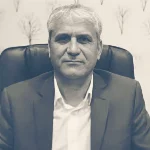
Dr. Mohammadhassan Heidari is an experienced Radiation Oncologist in Dubai with over 18 years of clinical experience in oncology, radiotherapy, […]
Hormone Replacement Therapy (HRT) is a medical treatment used to supplement the body with hormones it is no longer producing in sufficient quantities. This is most often due to natural aging processes, like menopause, or specific medical conditions that affect hormone-producing glands.
HRT is most famously used to manage menopausal symptoms, but its applications are broader:
Symptom Relief: Effectively treats common and often disruptive symptoms like:
Hot Flashes & Night Sweats
Vaginal Dryness, Itching, and Pain during intercourse (a condition called genitourinary syndrome of menopause, or GSM)
Mood Swings, Irritability, and “Brain Fog”
Sleep Disturbances
Prevention: Helps prevent osteoporosis (bone thinning) and reduces the risk of fractures in postmenopausal women.
Testosterone Replacement Therapy (TRT) can help:
Restore energy levels and reduce fatigue.
Improve mood and sense of well-being.
Increase muscle mass and strength.
Enhance libido and sexual function.
Maintain bone density.
HRT is a cornerstone of medical care for transgender and gender-diverse individuals.
Feminizing Hormone Therapy (estrogen, often with testosterone blockers) helps develop female secondary sex characteristics (e.g., breast growth, softer skin, redistribution of body fat).
Masculinizing Hormone Therapy (testosterone) helps develop male secondary sex characteristics (e.g., deeper voice, facial/body hair growth, increased muscle mass).
HRT comes in various forms, allowing treatment to be tailored to the individual:
Pills: Taken orally.
Skin Patches: Applied to the skin, releasing hormones steadily.
Gels and Creams: Rubbed into the skin.
Vaginal Rings, Creams, or Tablets: Used for local symptoms like dryness (these often have minimal systemic absorption).
Injections: Administered periodically.
HRT is a powerful treatment with benefits, but it also carries potential risks. The risks depend on the type of hormone, the dose, the delivery method, the duration of use, and your individual health history.
Increased Risk of Blood Clots (deep vein thrombosis or pulmonary embolism), especially with oral forms.
Slightly Increased Risk of Stroke.
Increased Risk of Breast Cancer with certain types of combined (estrogen + progesterone) therapy, particularly with longer-term use (more than 5 years).
Potential Increased Risk of Gallbladder Disease.
Can worsen sleep apnea.
May stimulate the growth of pre-existing prostate cancer.
Can cause or worsen acne and increase red blood cell count, which could raise the risk of blood clots.
1. Individualized Treatment: There is no “one-size-fits-all” approach. A treatment plan must be personalized by a doctor.
2. Use the Lowest Effective Dose: The goal is to use the smallest dose that effectively manages symptoms for the shortest duration necessary.
3. Regular Monitoring: Close follow-up with a healthcare provider is essential to monitor the benefits, adjust the dose, and screen for any potential side effects.
4. Consultation with a Specialist: Endocrinologists (hormone specialists) or knowledgeable healthcare providers are best equipped to guide this process.
The Bottom Line: HRT can dramatically improve quality of life for many people. The decision to use it should be made after a thorough discussion with your doctor, weighing your personal symptoms, health risks, and goals to create a plan that maximizes benefits and minimizes potential harms.

Dr. Mohammadhassan Heidari is an experienced Radiation Oncologist in Dubai with over 18 years of clinical experience in oncology, radiotherapy, […]

Dr. Şerare Moridi is a prominent obstetrician and gynecologist based in Maltepe, Istanbul, Turkey. She specializes in various aspects of […]

Dr. Maryam Mirzaei Moghadam is a highly skilled radiation oncologist in Tehran specializing in chemotherapy, radiotherapy, and advanced cancer treatments. […]

Dr. Shadi Zohourinia is a skilled radiation oncologist in Iran specializing in the prevention and treatment of adult cancers. Treatment […]

Dr. Shiva Moghadam is a highly accomplished radiation oncologist in Tehran, Iran, currently serving as: Academic Board Member at Motamed Jihad University […]

Dr. Reza Khodabakhshi is a distinguished radiation oncologist with extensive clinical and academic experience in cancer treatment. He earned a fellowship in Medical […]

Dr. Saeid Kalbasi is a highly skilled and board-certified endocrinologist in Tehran, specializing in hormonal and metabolic disorders. With extensive clinical experience, he provides […]

Dr. Manouchehr Mohammad Beigi is a highly regarded endocrinologist based in Tehran with decades of experience in treating a wide […]